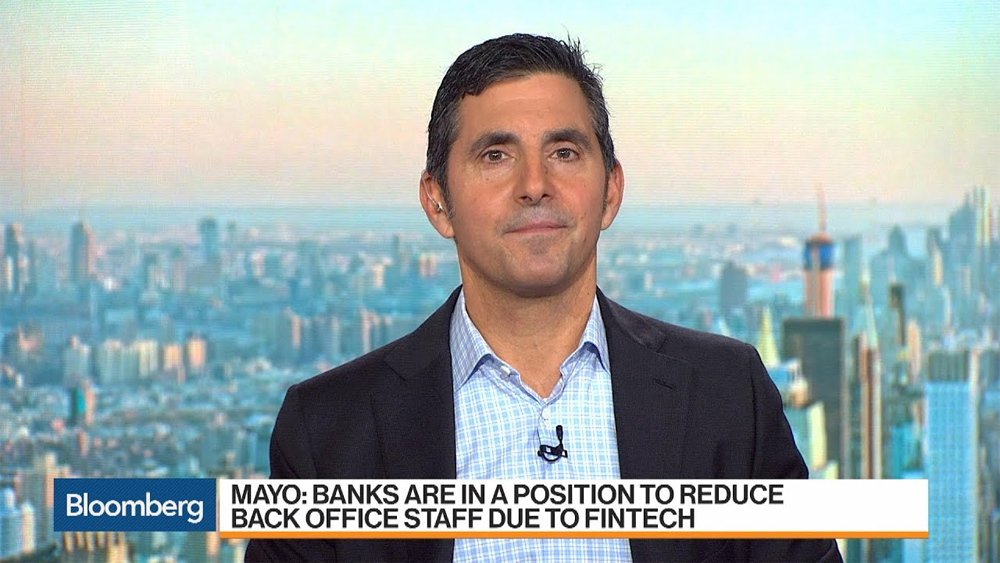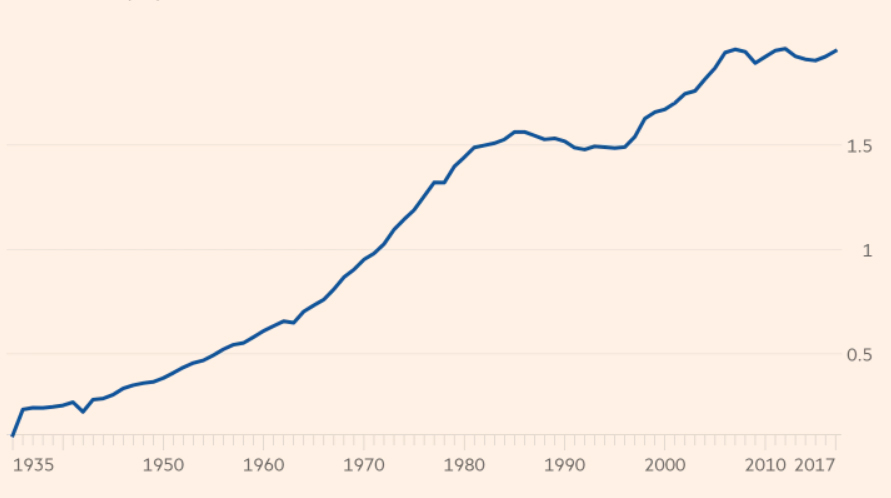Banks of America in the coming years will get rid of 200,000 jobs

Not only supermarkets try to replace their employees with robots. In the next decade, US banks, which now invest more than $ 150 billion a year in technology, use advanced automation to reduce at least 200 thousand workers. This will be the “greatest transition from labor to capital” in the history of industry. This is stated in a report by analysts at Wells Fargo , one of the largest banking holdings in the world.
One of the leading authors of the report, Mike Mayo, claims that banks in America, including Wells Fargo itself, will lose 10-20% of jobs. They enter the so-called “golden age of efficiency”, when one machine can replace the work of hundreds or even thousands of people. Layoffs will begin from the main offices, call centers and branches. There job cuts are expected to reach 30%. People will be replaced by improved ATMs, chatbots and software that can work with big data and cloud computing to make investment decisions. Mayo says:
The next decade will be the most significant for banking technology in history.

Mike Mayo
Reports that “the chef, everything is gone, the plaster is removed, the client is leaving” is a fairly common phenomenon in the world. But rarely, the inevitability of such a worst-case scenario is claimed by industry analysts. Typically, such news is brought by non-profit organizations or independent foundations. Now Wells Fargo openly and almost without diplomacy says: there will be no work, do whatever you want.
The freed money will go to the collection and use of big data, as well as to the development of predictive algorithms. Now there is an automation race between the largest American banks, and those who get rid of employees faster in favor of more powerful software will receive a very substantial advantage.
For bank customers, much will change. Support will be completely taken by chatbots and answering machines. By key phrases or user-selected options, they will understand the essence of the issue and offer solutions to the problem. Such systems are now offered by all large banks, but they are not competent enough, and as a result, the issue often still has to be decided by the person, the support employee. According to Wells Fargo, in the next five years, technology will reach a decent level, and the need for such people will disappear.

US Bank Employees
Also, the staff of the departments will be greatly reduced. There will be literally one or two employees inside, but the speed of processing requests will increase. Wells Fargo is not the only major bank with such big automation plans. Citigroup intends to lay off several tens of thousands of employees, and Deutsche Bank talks about a reduction of 100,000. Michael Tang, head of a financial services consulting firm, says:
The changes are quite dramatic, they can be seen both inside and out. We already see signs of this with an abundance of chatbots, and many people do not even notice that they are communicating with AI, because he has the answers to the questions they need.
Mike Mayo, as a representative of a large bank, is delighted with such prospects. Presenting his report the other day, he told CNBC:
This is great news! This will lead to a record increase in efficiency and an increase in market share among large players such as us. Goliath defeats David.

“Goliath wins,” Mayo’s catchphrase is now generally speaking; he goes on all the television channels with her. The bottom line is that banks that scale and grow win. And the bigger the bank, the more it wins. The more money he has invested in advanced systems, the faster he can begin experiments to replace employees, the easier it is for him to invest in innovation and win market share from the rest. As a result, even more income will be concentrated at the very top, among even fewer people. And at least hundreds of thousands of junior banking specialists - the population of a small city - will remain without work. By the way, 60,000 have already been laid off this year.
Users are also not very happy: many are more pleasant to communicate with living people trying to solve their problems. Even the best automated system will not always be able to find the answer to a non-standard question. In addition, in the future, banks will become much smaller. Those who do not automate will fall away. Even if you can reduce 5,000 jobs - this is a huge advantage, it saves about $ 350 million per year. It is difficult to get such a big benefit by any other method. Therefore, they will try to reduce everything. And the communication service with a personal consultant may remain for VIP-clients.
In the current situation, Goliath wins, and 200,000 people lose.

All Articles